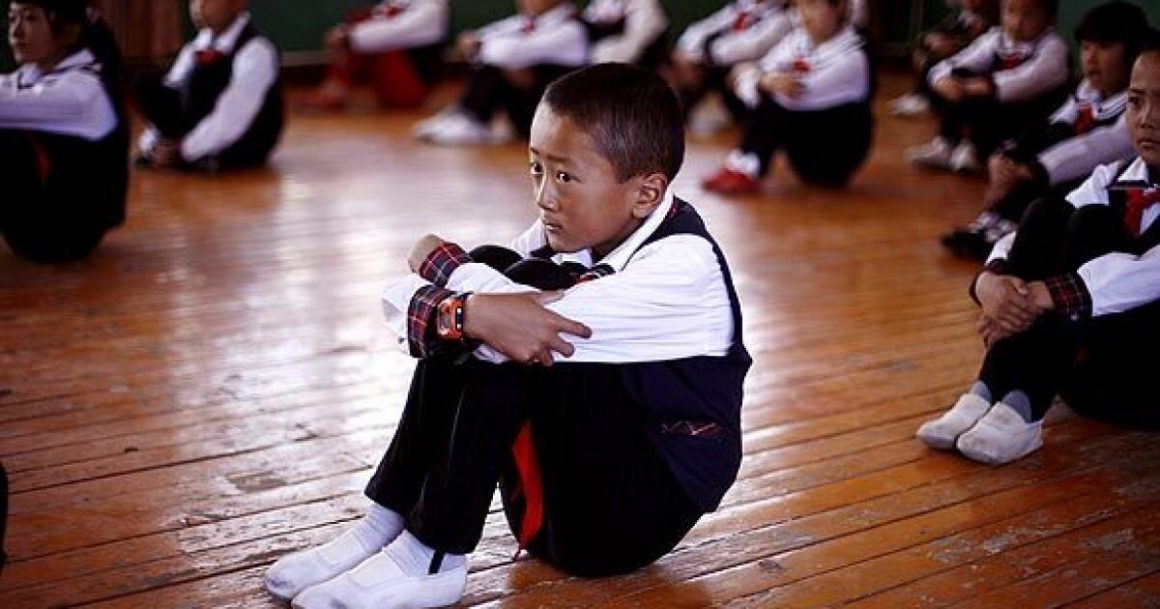China’s boarding schools strip Tibetan children of language: study
Original Article: https://asia.nikkei.com/Politics/China-s-boarding-schools-strip-Tibetan-children-of-language-study
HONG KONG — Chinese government policies are forcing three out of four Tibetan children into state-run boarding schools, separating them from their families and threatening to erase their mother tongue, cultural identity and traditions, according to a new investigative report.
The report by Tibet Action Institute, a campaign group based in the U.S., says 806,218 Tibetans ages 6-18 are enrolled in boarding schools.
The figure represents 78% of schoolchildren within the boundaries of the Tibet Autonomous Region and Tibetan districts of neighboring provinces, but is only an estimate, with the group saying the actual figure could be much higher.
“We know an increasing number of 4- and 5-year-olds are sent, or have to be sent, to boarding preschools,” Lhadon Tethong, a director of the institute, told reporters at an online news conference on Wednesday.
The report calls the practice of sending Tibetan children to state-run residential schools “an insidious tool in the larger project of forcing Tibetans to adopt a homogenous, patriotic Chinese identity in order to eliminate challenges to the [Communist] Party or the state.”
Under President Xi Jinping, Beijing has dramatically accelerated efforts to assimilate Tibetans and other ethnic and religious minorities into China’s Han majority culture on the notion that their distinct identities can pose a separatist security threat. Government officials also argue that focusing teaching in Mandarin Chinese, rather than minority languages, can improve students’ job prospects.
“Only through fostering a strong sense of community for the Chinese nation, and all ethnic groups jointly safeguarding national security and social stability, can the infiltration and subversion of extremist and separatist thoughts be resisted, and the aspiration of the people of all ethnic groups for a better life be fulfilled,” Xi said at a party gathering on ethnic affairs in August.
Wang Yi, who is both state councilor and foreign minister, kicked off a global campaign in October to touting improvements to Tibetans’ lives under seven decades of rule by Beijing. China’s growing global influence has made countries and corporations reluctant to criticize Chinese policies in Tibet and other regions with large minority populations.
Tethong, herself an ethnic Tibetan born in Canada, said children in Chinese boarding schools usually get little exposure to the Tibetan language and are “not able to practice Tibetan Buddhism.” She thinks Beijing’s intent is “to eliminate Tibetan identity, [and] trying to change or replace their Tibetan identity with a Chinese one.”
“It’s been happening so carefully and quietly, but on such a massive scale, under the cover of this information blackout,” she said.
Tibetan parents have little choice but to send their children to these schools, given a lack of viable alternatives. Many village schools have been shut down, along with those run by monasteries and ordinary Tibetans.
The report cites anecdotal evidence of parents facing threats, fines and other punishment if they resist enrolling their children in boarding schools. But many Tibetan parents also “view education as a necessity for equipping their children to survive in a rapidly changing world.”
“Together, these factors create a fundamentally coercive environment in which Tibetan parents are left with no choice but to send their children to boarding schools,” the report says.
The group compiled its report using official statistics issued by various levels of government, academic papers and media reports published between 2010 and 2020. In addition to firsthand accounts from Tibetans who experienced the boarding school system, researchers gathered information from exiled Tibetans, Chinese scholars and human rights groups.
Dolma Kyab, a Tibetan legal expert and blogger, said the residential schools, which began to appear in the 1960s, originally were meant to spread education in Tibet.
Beijing cites the education drive as a key accomplishment since bringing Tibet under its control in 1951, when it says the illiteracy rate was 95%. It says it has spent 223.96 billion yuan ($35.2 billion) on schooling efforts.
Boarding schools were ostensibly a way to deal with the problem of poor transport in a large mountainous area with a diffuse population but infrastructure improvements and urbanization have changed the situation. Now, Kyab said, “You don’t really need boarding schools on this scale.”
Kyab was enrolled in a boarding school at age 13. He experienced abuse and was crammed into a small dormitory room with 15 classmates, something he said altered his personality. Among various traumatic experiences, he told reporters that three of his female classmates died of carbon monoxide poisoning in their sleep. The windows of their dorm were shut while a coal-fired stove was kept on.
He now writes and speaks about these things, because “I don’t want my experience to be repeated by younger generations.” Against this backdrop, he called on Beijing to abide by its own constitution, which states that all races are equal and lauds the family as a basic unit in society to be protected by the state.



